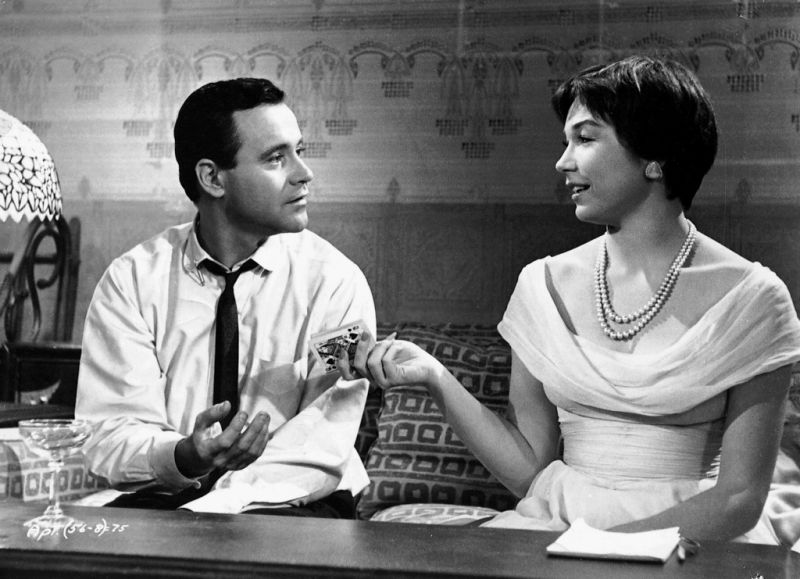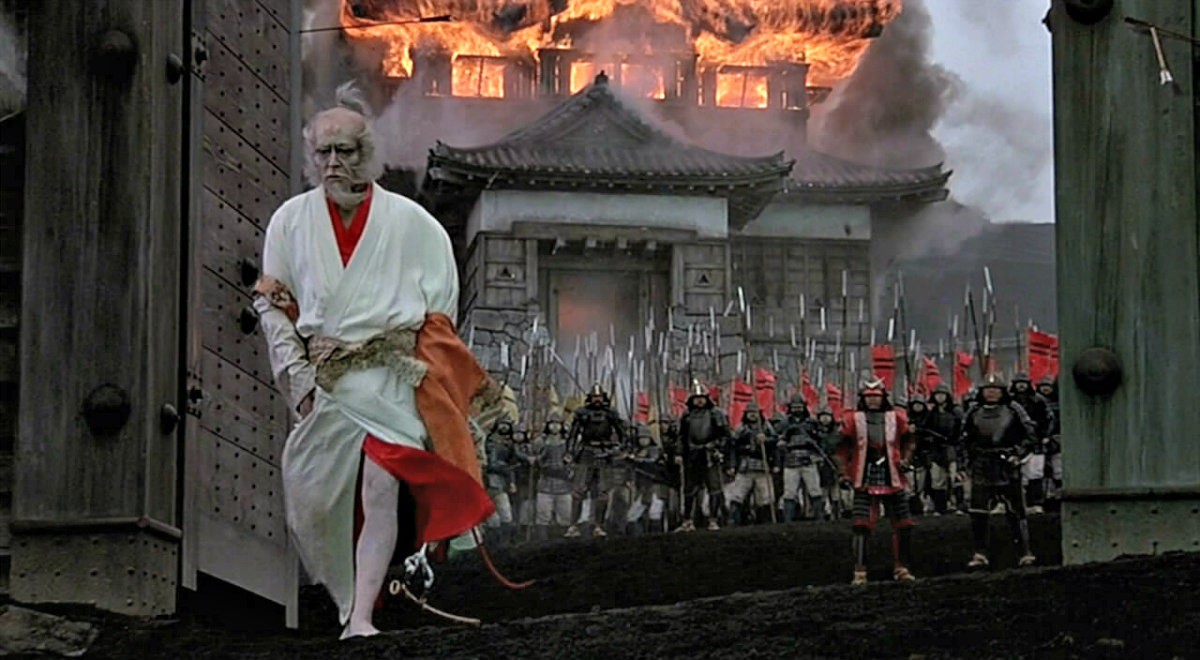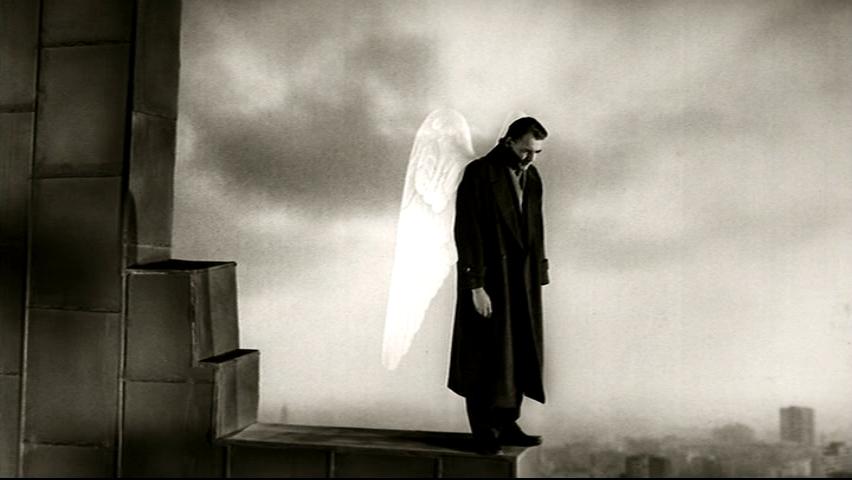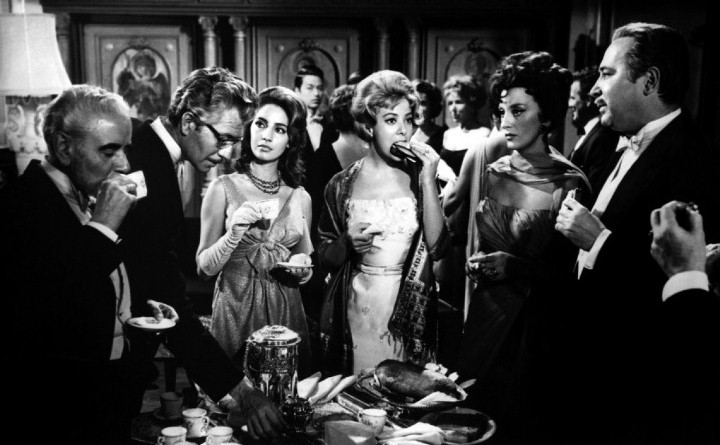6. The Apartment

Billy Wilder made some great comedies and some great dramas, but he never created a better blend of the two genres than The Apartment. In Jack Lemmon, Wilder found the perfect front man for a film like this.
As hilarious as Lemmon could be, he never lost his dignity in the process, and here he also found the chance to showcase his underrated dramatic acting skills. Shirley MacLaine, in one of her earliest roles, never fails to match the director and lead actor with the delightful versatility of her craft.
The story centers around an unmarried office worker, whose superiors at work discover than they can manipulate him to gain use of his apartment for their secret romantic trysts. Because he wants to succeed in his career the poor guy can’t muster the courage to say no, and often finds himself locked out of his own apartment in the cold. But when one of his bosses sets his sights on the unfortunate employee’s favorite elevator operator, things take a more complicated and serious turn.
It’s a fun, complex film with fun, complex characters. Anyone who loves rooting for the nice guy to finish first will form an instant bond with The Apartment. It pulls all of our emotional strings with skill and keeps us coming back for more.
7. Ran

A color film by the great Akira Kurosawa is always a special treat, and Ran is often considered to be his greatest one. It reimagines Shakespeare’s King Lear in the setting of feudal Japan to great effect: when a warlord somewhat past his prime decides to divide his vast kingdom among his sons, he regrettably trusts the most manipulative one and banishes the most honest one.
But this error in judgement sets up a breathtakingly beautiful film with a rich story filled with complex characters. The aging warlord begins to suffer for his mistake as his eldest son, aided by his equally vindictive wife, begins to tear the kingdom and his family apart.
Kurosawa’s brilliant use of color is on full show here as he memorably assigns each son a different color to wear. This not only makes for a vivid viewing experience, but also helps us easily differentiate the cast of characters within the richly layered story.
Featuring some of Kurosawa’s grandest sets and fiercest samurai battles, Ran is an easy contender for the greatest work of his career. Its visual beauty and timeless story make it a fan favorite and a pleasure to regularly revisit.
8. Babette’s Feast

Babette’s Feast is a classic in a class of its own, and a visual feast in every sense of the word. This Danish film was based on a story by Isak Dinesen set in 19th-century Denmark. It centers around two elderly sisters, Martine and Philippa, whose now deceased father founded an austere, Pietistic Protestant religious community which they continue to lead.
Shunning all worldly pleasures and excesses, the pious sisters live a quiet life of worship and good works. But when a Parisian war refugee named Babette shows up at their home asking for lodging in exchange for cooking and housekeeping, the catalyst for conflict is set in motion.
This quiet little film is austere in its own endearing way, with restrained pacing and exquisite beauty. It respectfully adopts the spirit of the little community which it observes, telling the story in a way that is never intrusive but also never dull. After establishing its consistent tone though, Babette’s Feast takes an unexpected turn when the housekeeper receives word that she has won the lottery.
As a former chef, Babette immediately knows what she wants to do with her money – prepare an exquisite meal for the community where she has lived as a quiet outsider for many years. The sisters reluctantly agree, but how will the ascetic congregation respond to a lavish feast after years of strict self-denial? With anger or curiosity? This film is a dream come true for food lovers, and after enjoying this movie you’re sure to be back for seconds.
9. Wings of Desire

Wings of Desire is a timeless meditation on the nature of human existence, seen through the eyes of someone who has never experienced it. This film imagines how life would appear to angels who invisibly walk among people, observing their actions and hearing their thoughts. The anxieties and fears which make people feel hopelessly lost seem to these angels like profound sensations they have never experienced.
At the same time, moments of love between humans are glimpses of the sublime, which are valued by mortals for lifting them above their lives of turmoil. When one of these angels who wanders the streets of Berlin becomes strangely drawn to a trapeze artist whose life he has observed, he begins to wonder if experiencing a temporal life of human love might be worth exchanging his blissful, immortal existence for.
Wim Wenders directs this beautiful German film with detachment and poise, representing the perspective of observers who live in a chaotic world without partaking of the chaos. It’s not meant to be a completely realistic story, and one does not have to believe in angels to enjoy it. But it is a profoundly poetic experience worth returning to whenever you need a reminder of the value of the gift of life. There are few films as effective in reminding humans to cherish the small gifts they often take for granted.
10. The Exterminating Angel

One of the most surreal movies from perhaps the greatest surrealist director, Luis Buñuel’s The Exterminating Angel is a disturbing but endlessly entertaining little gem. Turning a critical eye on the hypocrisy of the powerful upper class while examining the notions of free will and fate, this Spanish film has a lot to say without ever becoming self-important.
After a formal dinner party where a diverse group of wealthy guests have successfully put aside their disdain for each other long enough to have a pleasant evening, things go badly wrong. One by one, guests try to leave the house only to discover that they cannot cross the threshold of the room.
As hours turn into days, the unwilling visitors must reckon with their situation while chaos and suppressed hatred erupt within the confined space. The veiled but supposed reason for their imprisonment is that they are all being judged for their selfish lives by some supernatural force.
The Exterminating Angel is filled with wonderfully surreal touches – while no people can enter or exit the room, some sheep and a bear inexplicably come and go at will. Humorous moments combine with a searing indictment of high society to create a truly unique classic worth watching again and again.